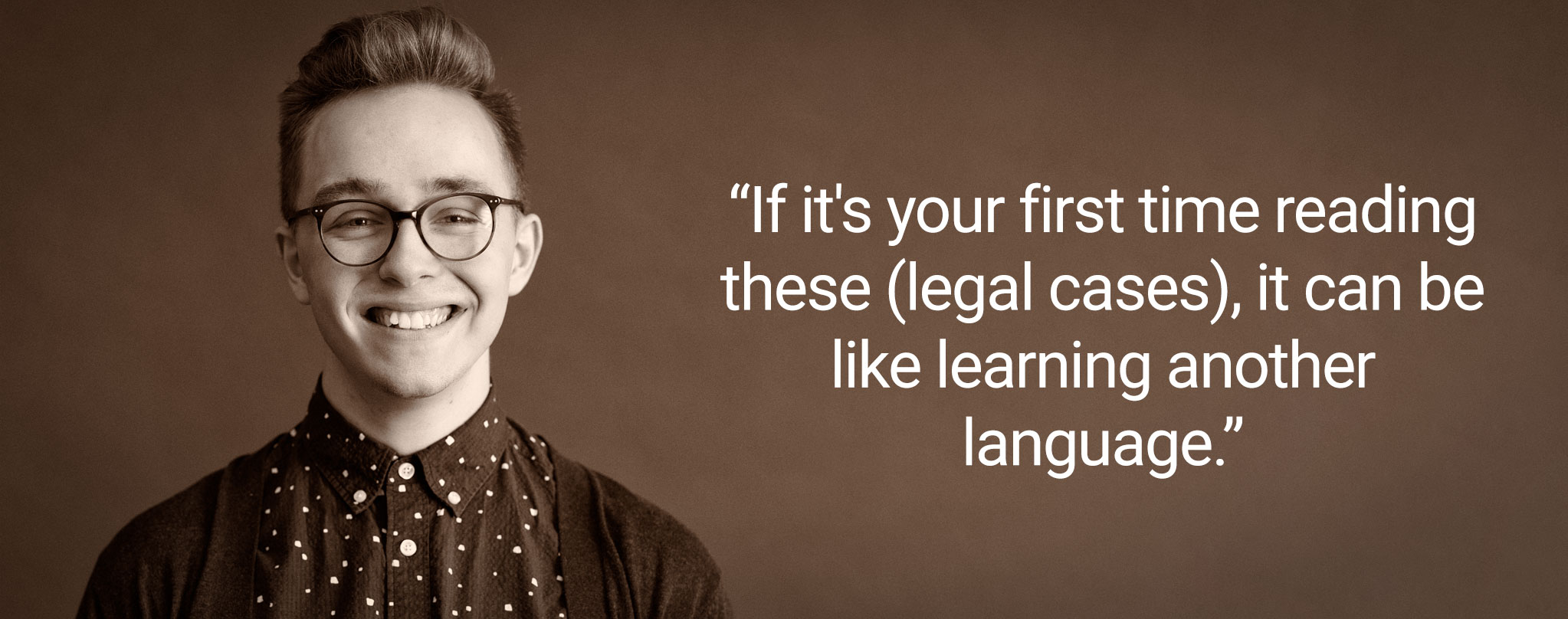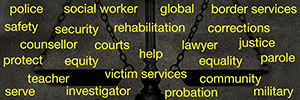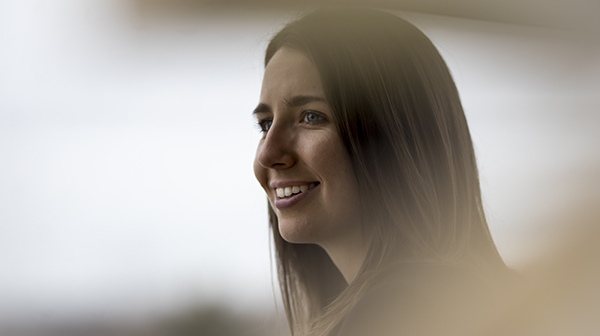- Future Students
- Current Students
- Faculty
- Staff
- Alumni
- Others
UofGH competes in third Lions Cup National Summer Undergraduate Mooting Competition

Four teams of University of Guelph-Humber students from a variety of programs recently competed at the third Lions Cup National Summer Undergraduate Mooting Competition, which this year was conducted virtually.
Students from universities from across the country competed in the Lions Cup, which is open to undergraduate, graduate and PhD students. Judges ranged from sitting/retired judges, lawyers, paralegals, professors and law school students who have mooted. All have experience with case law and how it’s carried out in an appellate court of law.
Given the high level of competition, UofGH students Taimur Shakeel and Amtul Waseem were pleased to advance to the quarter-finals of this year’s moot.
“The students worked extremely hard,” said society advisor Dr. Glenn Barenthin. “We practised together twice a week for the past month and they also worked on their own between practices. Most were mooting for their first time and to advance to the quarter-finals in this competitive competition is very impressive.
“Mooting is difficult as you need to thoroughly know the case as well as all the cases that are referenced. It was a competitive tournament with teams registering from many universities.”
Shakeel, heading into his third year in the Justice Studies program, and Waseem (soon to be a second-year Justice student) were both participating in a moot for the very first time, and the result came as a pleasant surprise.
“At the beginning, I didn’t think we could advance to the second day at all, so I’m surprised and proud of us for making it this far,” Waseem said.
“Preparing for the moot was more work than I expected it to be, but at the end of the day, it all comes down to essentially how stubborn you can be about the point you’re making. I felt that my confidence grew over each round, so by the time we were in our fourth round of the first day, I had some hope that we could make it to the quarter-finals. Overall, the experience was a lot of fun and given how this was my first time mooting, I would say it was a success.”
“Even though we didn't we make it further, the experience was phenomenal and we definitely made it further than I ever thought we would,” Shakeel added. “I am excited to try out to be in another mooting competition in the coming semester, and I'm definitely going to try to make it to additional rounds in Day 2 if I do get the chance.”
A tough test
The 2020 Lions Cup moot case was R v. K.J.M., 2019 SCC 55. Each team was composed of two speakers; one team of two would act as the Appellants, and another as the Respondents. Each team took each side twice for four total rounds overall in the first day. Each speaker had 10 minutes to make submissions, with a timekeeper watching carefully.
Certainly, it was a daunting but rewarding experience for the students who took part.
To prepare, students from UofGH’s Guelph-Humber Pre Law Society organized twice-weekly virtual meetings (mooting is the society’s primary focus). The meetings took anywhere from 30-90 minutes as the students – including students from Family & Community Social Services, Justice Studies, Kinesiology and Media Studies – and Dr. Barenthin worked together to prepare submissions.
“What goes into preparation for a moot generally consists of becoming really familiar with these legal cases, which can be quite extensive. Especially if it’s your first time reading them, it can be like learning another language,” said FCSS student Michael McRae, who helped with the sessions even though he wasn’t competing this year. “Familiarizing yourself with that, learning about case law and presenting to other people on the team are all important.”
“I remember when we saw that people devote 10 hours a week to preparing for a moot, we thought there would be no way,” said Sonia Ramanan, who is heading into her second year. “But we kept a notes log and we update it every time we meet and every time the society meets – and we definitely spent more than 10 hours doing this.”
The benefits of mooting
All that time preparing – and the team members did emphasize that their meetings were fun – was not spent in vain. Students cite an array of ways in which mooting has helped them.
“I used to not even make phone calls to order pizza. That’s how badly I didn’t want to interact with people. Now I get up and debate with judges,” said recent FCSS graduate Payton Tenebaum. “Now, I’m going into my Master’s in industrial relationship at Queen's University where we have to do mock arbitrations and real arbitrations when it comes to that.
“When I applied, I really emphasized in my statement of interest about my mooting experience. I think that that’s kind of what gave me a little bit of an edge. I was able to articulate that I have experience with the law.”
McRae also found that mooting changed his career path.
“It was actually a really great eye opener for me. I was not too sure what I wanted to go into after undergrad. I knew I wanted to continue education but I didn’t know what in, but Pre-Law showed me that I have a passion for law and justice.”
Exploring a case in depth and having one’s presentation skills tested in such a challenging way has also had benefits that carried over to the classroom.
“You don’t study cases this in-depth in a regular class because there’s so much to cover so quickly,” said Vic Duarte, who is going into third year in Justice Studies. “The presentation skills that you get from practising with your peers and people from different schools, it definitely transfers into your school work and how you perform in your regular classes.
“The fear I felt when I went to go moot for the first time made every other class presentation feel like a walk in the park.”







